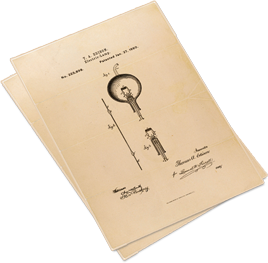Yes, if you look in Merriam-Webster you will find copyright defined as a verb. The reason copyright is defined as a verb is that it is widely used as a verb in “the media” and other “literature,” and, for good or ill, that’s where words acquire their definitions.
The trouble with the use of copyright as a verb is that it gives the impression that once you have written your novel, you need to do something in order to own the exclusive right to make and authorize copies of your work. Simply not true. Copyright attaches to the “author” of an original creative work (of any of the “arts”) from the moment that the work is “fixed in a tangible medium.” (And these days, digital is tangible.) No other action — no copyright-the-verb action — is necessary to own the right to make copies.
So why do journalists and other folks who, on checking facts, ought to know better want to tell us that someone “copyrighted” a song or book or play? Because it’s easier than “registered their copyright.” Fewer keystrokes.
The truth is that once you create a work of literature or one of the other “arts,” your work is (here’s another ugly word) “copyrighted” the adjective. After that, in the U.S. and a few other countries, you can register your claim of copyright in the work, and it’s not a bad idea, in many cases, to do that, especially where the work is “published” — made available to the public. What you are doing in registering your copyright is depositing a copy of your work in the Library of Congress. and making an indelible public record that you own the copyright in it.
And that indelible public record is valuable and recommended, especially for those kinds of works that are most often pirated — music recordings, film, drama, and fine or graphic art — because registration in the U.S. provides:
- That claims of infringement can be taken immediately to federal court.
- That registration made within 5 years of publication results in the legal presumption that the copyright is valid in fact.
- That registration made within 3 months of publication allows recovery of statutory damages and attorney’s fees from successful prosecution of infringement claims.
- That registrations may be recorded with the U.S. Customs Service to protect against the importation of infringing copies.
Without registration, you can’t bring a claim of infringement to court until you retroactively register the work, and your recourse against the infringer is likely limited to an injunction against further use and actual damages, primarily lost sales and the infringer’s ill-gotten gain that you can prove.


